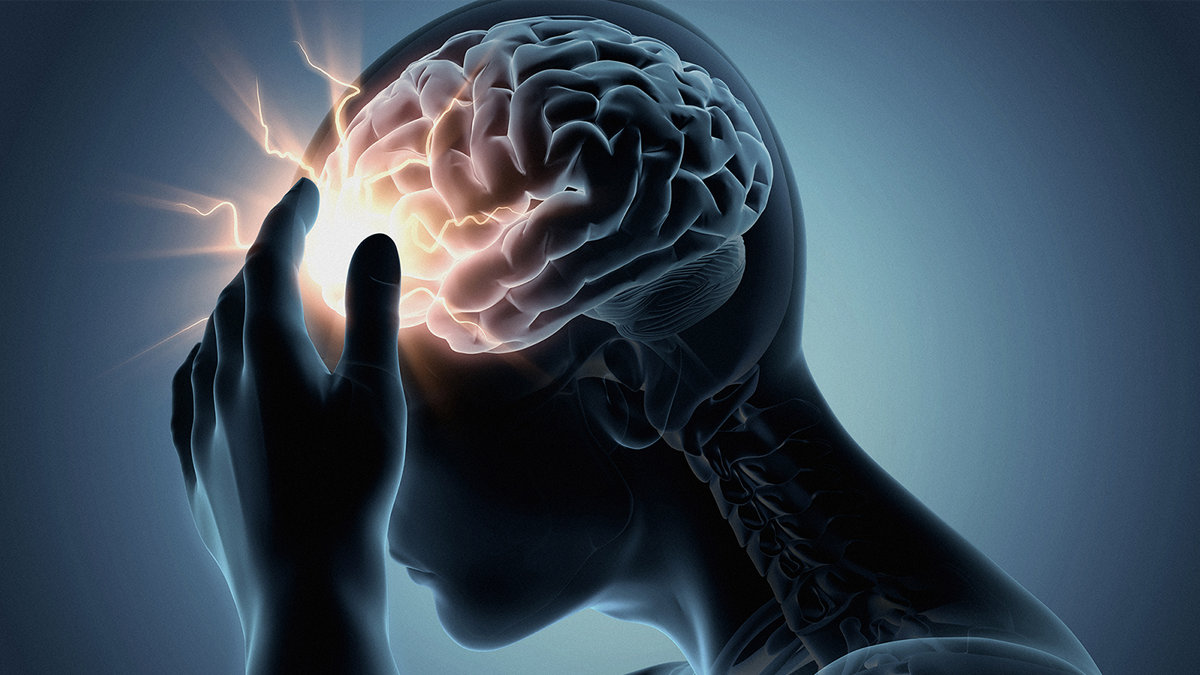Key points
- People with a mild TBI or concussion need to be seen by a healthcare provider.
- Healthcare providers can do tests to check for a mild TBI or concussion.
- Consider using telemedicine or telehealth services if you are unable to visit a healthcare provider in person.

Overview
Most TBIs that occur each year are mild TBIs or concussions.1 A mild TBI or concussion is caused by:
- A bump, blow, or jolt to the head, or
- By a hit to the body that causes the head and brain to move quickly back and forth
This sudden movement can cause:
- The brain to bounce around or twist in the skull
- Chemical changes in the brain
- Stretching and damaging brain cells2
These changes in the brain lead to symptoms that may affect how a person thinks, learns, feels, acts, and sleeps.1
Testing and diagnosis
Your healthcare provider may ask about symptoms and test you to see if you have any problems with:
- Learning
- Memory
- Concentration, and
- Problem solving
These tests are called "neuropsychological" or "neurocognitive" tests and can help your healthcare provider identify the effects of a mild TBI or concussion. Even if the injury doesn't show up on these tests, you may still have a mild TBI or concussion.
A scan of your brain (such as a CT scan) is not needed to spot a mild TBI or concussion, but may sometimes be used for patients at risk for bleeding on the brain after a head or brain injury.34
Treatment and recovery
Mild TBIs and concussions are serious
Healthcare providers may describe these injuries as mild because they are usually not life-threatening. Even so, the effects of a mild TBI or concussion can be serious.
Get medical care for a mild TBI or concussion
People with a mild TBI or concussion need to be seen by a healthcare provider. Contact your healthcare provider as soon as you can if you think you have a mild TBI or concussion. Getting care after a mild TBI or concussion can help speed your recovery.
You may consider using telemedicine or telehealth services if you are unable to visit a healthcare provider in person. Telemedicine and telehealth services:
- Connect patients and their healthcare providers through a phone or video chat
- Allow patients to get checked for mild TBI or concussion symptoms and get recovery tips without needing to travel to a medical office or hospital
Your healthcare provider can identify whether these services are available to you.
Patients experiencing mild TBI or concussion danger signs should seek care right away at an emergency department.
Ask your healthcare provider for instructions on how to safely return to activities following a mild TBI or concussion. Be sure to follow all of your healthcare provider's instructions carefully.
See What to Do After a Mild TBI or Concussion for tips to help aid your recovery after a mild TBI or concussion.
Repeated mild TBIs or concussions may lead to a longer recovery
A person with a history of multiple or repeated mild TBIs or concussions may experience a longer recovery or more severe symptoms.5 They may also have long-term problems, including:
- Ongoing problems with concentration, memory, headache
- Physical problems, such as keeping one's balance5
- Maas AIR, Menon DK, Manley GT, Abrams M, Åkerlund C, Andelic N, et. al; InTBIR Participants and Investigators. Traumatic brain injury: progress and challenges in prevention, clinical care, and research. Lancet Neurol. 2022;21(11):1004-1060. doi: 10.1016/S1474-4422(22)00309-X.
- Giza CC, Hovda DA. The new neurometabolic cascade of concussion. Neurosurgery. 2014;75 Suppl 4(0 4):S24-S33.
- Lumba-Brown A, Yeates KO, Sarmiento K, Breiding MJ, Haegerich TM, Gioia GA, et al. Centers for Disease Control and Prevention guideline on the diagnosis and management of mild traumatic brain injury among children. JAMA pediatrics. 2018;172(11), e182853-e182853.
- American College of Emergency Physicians Clinical Policies Subcommittee on Mild Traumatic Brain Injury. Clinical policy: critical issues in the management of adult patients presenting to the emergency department with mild traumatic brain injury. Annals of emergency medicine. 2023;81(5):e63-e105.
- Centers for Disease Control and Prevention, National Center for Injury Prevention and Control. Report to Congress on traumatic brain injury in the United States: Epidemiology and rehabilitation. Atlanta (GA): Centers for Disease Control and Prevention; 2015.
